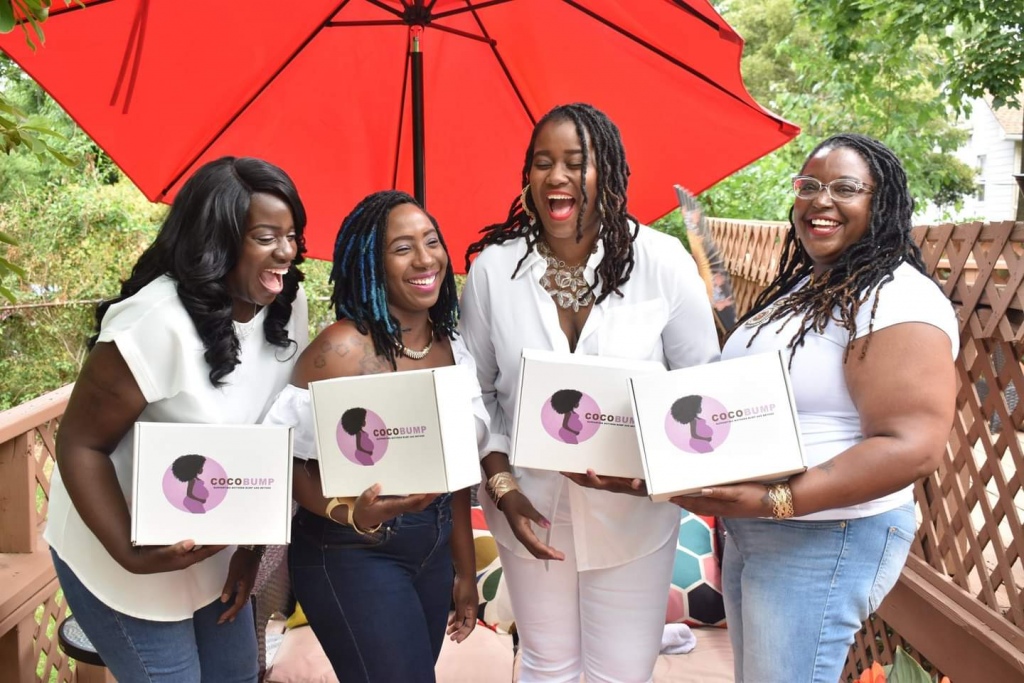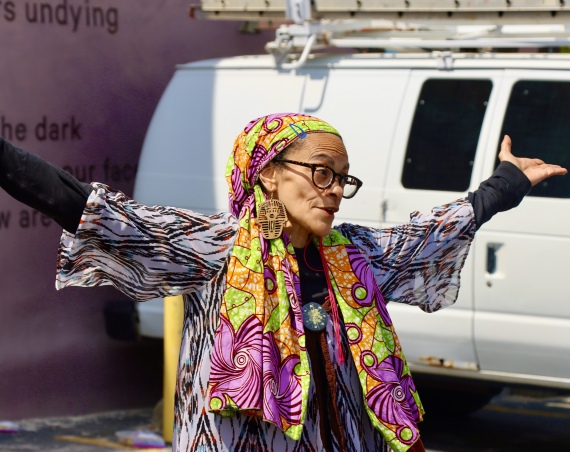
For Alexia Doumbouya, postpartum depression is real. After terminating a pregnancy at the age of 13, she feared becoming a mother. After the birth of her first child, Doumbouya experienced anxiety and developed postpartum depression. She looked for help and support but felt she was alone.
After experiencing postpartum depression after the birth of her second child as well and speaking with other women, she realized postpartum depression is common. But support was not easily accessible for Black women, during pregnancy or “beyond the bump”.
“People recognize the bump,” Doumbouya said. “They see you, you’re pregnant, and they’re like, Oh, that’s so great. But nobody really kind of checks on you or talks about after the bump goes away, for whatever reason, that bump goes away.”
In July 2020, Doumbouya founded Coco Bump along with her project team: Jasmine Dennison, Ericalynn Cotton and Tei Pearson. Coco Bump is a maternal health website with the mission to reduce race-related disparities while offering emotional support resources for new and expecting moms.
“It really kind of just birthed out of my own experiences and experiences of those around me,” Doumbouya said. “We’re not trying to be medical professionals. But we just want to be able to support these moms, and show that they are not alone.”
Coco Bump has cultivated a Black maternal community. Their ‘Believe and Uplift Mothers Passionately’(or B.U.M.P) support group focuses on women experiencing challenging pregnancies and postpartum depression. Coco Bump also sells self-care boxes specifically designed for each trimester of pregnancy and for postpartum depression, miscarriage, or the loss of a child.
According to the Centers for Disease Control, Black women are three to four times more likely to experience pregnancy-related death than white women. Asasiyah Mohammad, a Germantown resident and owner of Inner Circle Midwifery , said maternal support is essential. Mohammad works with more than 30 mothers a year, connecting them to doula support. A doula can provide guidance and support throughout pregnancy. “We suffer more in those systems because we don’t feel heard or seen,” she said, “and we’re not heard and seen in the way that we should be.”
Coco Bump is Doumbouya’s way of addressing some of the inequalities in maternal care for Black mothers.
“It’s really designed to kind of help reduce a lot of those disparities that a lot of Black and Brown women experienced when it comes to maternal health,” Doumbouya said.
For more information about Coco Bump, visit their website or follow their Facebook page to learn about upcoming events.



